Chelation in Agriculture Fertilizers: What to Know
Posted on May 05, 2023
You may have heard of chelation or chelated nutrients before, but perhaps you are unsure what these terms really mean. What is chelation and how does it relate to the fertilizer many use in their operations?
Chelation is a chemical process of binding metal ions or other substances to a molecule, such as a chelating agent, to form a stable, ring-like complex called a chelate. The word chelation comes from the Greek word "chele," which means "claw," referring to the way the chelating agent binds to the metal ion like a claw.
At a microscopic level, chelation looks similar to the graphic below:

What is Chelation in Agriculture?
In agriculture, chelation is used to improve plant nutrient uptake by making certain nutrients more available to plants. This is particularly useful in soils deficient in certain nutrients, such as iron or zinc.
Chelating agents are used to chelate micronutrients, such as iron, copper, zinc, and manganese, making them more soluble and available for plant uptake. This process can improve plant growth and development, as well as increase crop yield and quality.
For example, iron deficiency is a problem in many crops, particularly in alkaline soils. In this case, iron chelates can be applied to the soil or foliage of a wide variety of crops to improve iron uptake for the crop. Similarly, zinc chelates can be used to address zinc deficiencies in crops. Before using products to correct nutrient deficiencies, be sure to consult your agronomist. They can help you find a solution and create a plan specific to your needs.
Types of Chelates
There are various types of chelates used in fertilizer formulations. Refer below to see several types of chelates and what makes each type unique:
Citric chelates are a type of chelating agent commonly used in agriculture to improve plant nutrient uptake. They are derived from citric acid, a weak organic acid found in many fruits and vegetables, and can chelate metal ions.
Citric-chelated micronutrients are designed for soil or foliar application. They are compatible with most herbicides, insecticides, and agricultural chemicals that may be used with liquid fertilizers.
Humic and fulvic acids are organic acids found in soil, peat, and other natural sources. Humic and fulvic acids can chelate both applied nutrients and nutrients in the soil, making them more available for plant use.
In addition, humic and fulvic acids can also improve soil structure and fertility, promote microbial activity in the soil, and help retain soil moisture. This can improve plant growth and development, as well as increase crop yield and quality.
Ammoniated chelates are chelating agents that contain both a metal ion and ammonia groups. The metal ion, typically iron, zinc, copper, or manganese, is bound to the chelating agent molecule through a chelation process, while the ammonia groups help to stabilize the metal ion and make it more available.
EDTA stands for ethylenediaminetetraacetic acid, a synthetic compound that can chelate metal ions. They are particularly useful for chelating micronutrients, such as iron, zinc, copper, and manganese which help improve crop growth and overall crop quality and yields.
EDTA-chelated solutions can be soil or foliar applied and are designed for use in liquid fertilizers and suspensions. They are compatible with most fungicides, insecticides, and herbicides.
Download the Chelation Guide Now
Chelation-based fertilizers provide an effective solution for growers to enhance plant and nutrition programs. To learn more about chelation and its benefits, download our Understanding Chelation guide, which covers everything you need to know about chelating agents and the different types used in fertilizer formulations.
Visit AndersonsPlantNutrient.com/MicroSolutions to learn more about our available chelated fertilizer options or reach out to your territory manager for information and pricing.



